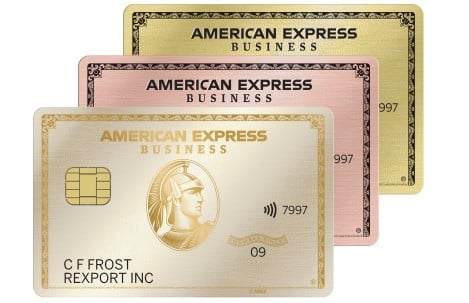SBA Loan Default: What to Know If You Can’t Pay
If you're struggling to pay your SBA loan, talk to your lender about possible options to avoid default.

Many, or all, of the products featured on this page are from our advertising partners who compensate us when you take certain actions on our website or click to take an action on their website. However, this does not influence our evaluations. Our opinions are our own. Here is a list of our partners and here's how we make money.
SBA loans are one of the most popular types of small-business loans, offering long repayment terms and competitive interest rates. However, with the ever-changing nature of the economy, it can become difficult for some business owners to repay their debt — potentially leading to loan default.
Here, we’ll review what happens when you default on an SBA loan and how you can try to avoid this situation altogether.
How much do you need?
We’ll start with a brief questionnaire to better understand the unique needs of your business.
Once we uncover your personalized matches, our team will consult you on the process moving forward.
What is an SBA loan default?
Your SBA loan goes into default when you repeatedly fail to meet the legal terms of your business loan agreement. When you default on your loan, you’ve continuously missed payments and haven’t come to a resolution with your lender. At this point, the lender doesn’t believe that you can or will repay.
Before you reach default, however, your SBA loan will be considered delinquent. Most lenders will classify your loan as delinquent once you start to miss payments. At this point, your SBA lender will likely contact you to inform you of your delinquency and insist that you repay your debt.
Failing to pay or otherwise contact your lender after a specific period of time — usually three to four months — will result in SBA loan default.
What happens if you default on an SBA loan?
If your SBA loan goes into default, your lender will try to collect on the debt. Although protocols can vary, here's what the process generally looks like.
Lender seizes your collateral
When you default on an SBA loan, your lender will reach out to inform you of your default status. Next, the lender will seize any collateral — e.g., real estate, inventory, equipment — that you used to secure your SBA loan and sell it to recover its losses.
If necessary, the lender can also claim and sell your personal assets, according to the terms of your SBA loan personal guarantee. The lender can claim the personal assets of any other individuals or business owners who signed personal guarantees as well.
Lender files for the SBA guarantee
If your business and personal assets are not enough to cover your debt, your SBA lender will file a guarantee request with the U.S. Small Business Administration. In other words, by making this request, your lender is asking the SBA to repay the portion of the loan that was guaranteed by the government.
SBA tries to collect
Even though the SBA will repay your lender to recover its losses, the agency will still hold you responsible for your debt. The SBA will reach out for repayment in the form of a 60-day demand letter.
Typically, these letters state that you have 60 days to respond to the SBA before it transfers your account to the U.S. Treasury Department. At this time, you can repay the loan or submit an offer in compromise.
» MORE: How does debt settlement work?
You submit an offer in compromise
An offer in compromise (OIC) is an agreement that allows you to settle your debt. You draft a lump sum settlement or payment plan that you’re willing to enact and if accepted, your lender and the SBA will resolve your debt — even if it’s less than what you owe.
For the SBA to approve your OIC, however, you’ll need to prove that you cannot repay the money you owe within a reasonable time frame. Additionally, your business is only eligible for an OIC if it has stopped operations, liquidated its assets and used the funds from liquidation to reduce your debt.
If you’re facing an SBA loan default, it can be useful to reach out to a business attorney who specializes in these issues. An experienced attorney can offer advice based on your individual situation and help you draft any necessary legal documents, like an offer in compromise.
SBA transfers your account to the U.S. Treasury Department
If you ignore the 60-day demand letter or can’t come to a compromise with the SBA, your loan account will be transferred to the U.S. Treasury Department. To collect the money you owe, the Treasury Department may withhold your wages, tax refunds or other government benefits. It may also decide to file a lawsuit against you.
What happens if you default on an SBA disaster loan?
If you default on an SBA disaster loan, the SBA will use all avenues possible to try to collect payment. If you contact your lender, you may be able to set up a repayment strategy.
On the other hand, if you don’t try to make an effort to repay, the SBA will likely seize any collateral you used to secure the loan — and if necessary, the government can take legal action against you.
How to prevent SBA loan default
Loan default can be detrimental to the survival of a small business. If you’re having trouble making payments, or anticipate being unable to repay your loan, there are a few strategies you can employ.
Reevaluate your business finances
By taking a deeper look into your business finances, you may be able to find solutions that will enable you to continue to make payments on your SBA loan. For example, you might review your expenses and see if there are any areas where you can reasonably cut costs.
You can also review your cash flow forecasts in order to determine whether you’ll have the funds to pay your lender in the upcoming future. A business debt consolidation loan can be a good option if you want to replace several existing loans with a new one, hopefully with better rates and terms.
Reach out to your lender
Before you reach the point of default, talk to your SBA lender. If you’re having trouble making payments on time, or at all, be honest with your lender about the situation. It may be willing to work with you on a resolution, such as:
Lengthening your loan term to lower monthly payments.
Allowing you to pay only interest on the loan for a period of time.
Deferring payment for a period of time.
Get professional assistance
If you’re concerned about the state of your finances and your ability to repay an SBA loan, it can be a good option to work with a business professional, like a certified public accountant or attorney. These individuals can review your finances and offer advice on what you can do to best manage your payments.
A business attorney can also help you discuss repayment options with your lender, work through the collections process and draft an OIC, if needed.
To mitigate the cost of these resources, you can use an organization like SCORE, which matches small-business owners with free mentors offering a variety of expertise in the business industry. You can search for mentors based on their location and industry, as well as expertise, such as accounting, finance, loans or legal.









